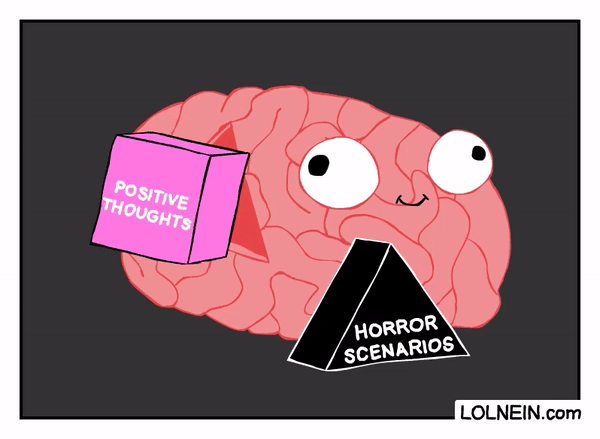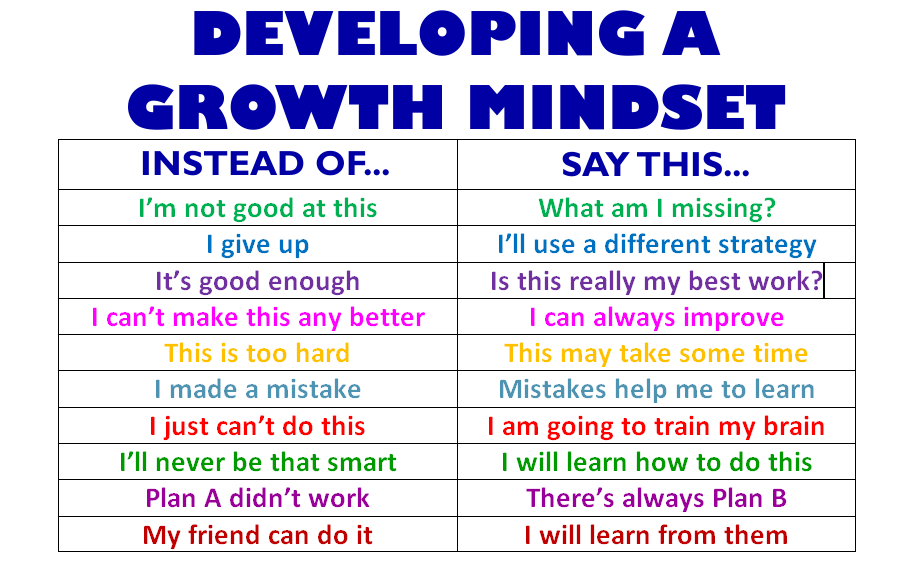“Think positive thoughts” has become an overused expression that is easy to ignore. But is there some truth to the idea that the way you think impacts your real life success? There’s a lot of research on what scientists call “growth mindsets”. People with growth mindsets believe they are capable of improving their skills with hard work, while people with fixed mindsets believe they are born with natural talents and limits that are difficult to change. Both of these beliefs are true to some extent, but there’s a far more important question: Are there advantages to choosing one type of mindset over the other?

Growth mindsets vs fixed mindsets
Research on growth mindsets was pioneered by the psychologist Carol Dweck decades ago. But it wasn’t until 2019 that a large and robust study finally tested how much growth mindsets can improve mental performance.
The study recruited over 6000 ninth-grade students who were struggling academically at schools across the US, and taught some of them to develop a growth mindset. The teaching encouraged students to believe that they could become smarter with hard work, rather than believing that they had fixed intelligence. The researchers reliably found that students who were taught a growth mindset ended up with better grades. The analysis estimated that growth mindset interventions could reduce failed graduations by over 10%.
So it looks as though fostering a growth mindset can have major benefits for performance at school. But the advantages don’t only apply to kids. For example, businesses that embrace a growth mindset have a more empowered, collaborative, and honest workforce. In other words, we can all benefit from developing a growth-friendly and optimistic mindset.

How to strengthen your mindset
The 2019 study I described above focused on three key ingredients in their growth mindset training. You can apply the three ingredients in your own life and see how it improves your thinking and behavior:
Ask for help when you need it: People with fixed mindsets believe that if they need to try too hard or ask someone for help, it’s because they lack competence. This is obviously not true, and can hinder progress by preventing learning at the precise moment when you most need it. Asking for help is a sign of curiosity, openness, and a drive to learn. By applying it consistently, you avoid limiting yourself with self-sabotaging obstacles.
Know that your skills and traits are not fixed: Genetics plays an important role in how your brain and personality develops, but reaching your personal potential depends entirely on effort. Believing that your skills are fixed and unchangeable is wrong and self-limiting. Whenever you fail, know that you can learn from it and fail less next time. Don’t let beliefs such as “I failed because I don’t have the ability to do this” enter your mind.
Never be afraid of looking stupid: If one of your goals is to never look stupid, you will do everything you can to avoid practicing and improving your weakest abilities. Avoidance limits your skills and cancels opportunities for growth. It’s therefore essential to practice asking questions that sound dumb and tackle challenges that seem beyond your reach. By nurturing your growth mindset in this way, you become more adventurous and more resilient.
Upgrading your self-talk
What does your mind sound like? Your mental language has a big effect on how you feel and behave. It’s important to train your mind to lean into positive language during difficult moments, because it’s the best way to stay confident and ultimately overcome problems. Somebody on the internet drew up the great little table below. Take a look and see whether your psychology is more in line with the first or second column. In the future, try to transform all of your first-column thoughts into second-column thoughts.

That final quote
These words are a great summary of what it means to hold a growth mindset. The quote has been attributed to both Ernest Hemingway and W. L. Sheldon:
“There is nothing noble in being superior to your fellow man; true nobility is being superior to your former self.”
❤️Please spread the word among friends who might like The Brainlift by forwarding this newsletter. If you’re new here, sign up below or visit erman.substack.com ❤️
Erman Misirlisoy, PhD
Like The Brainlift on FACEBOOK
Follow me on TWITTER
Follow me on MEDIUM
Connect on LINKEDIN



